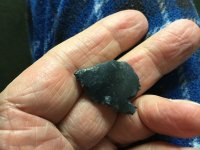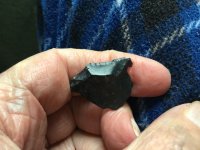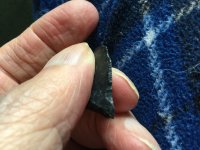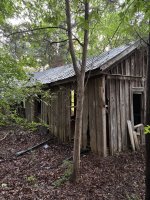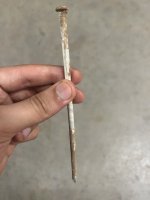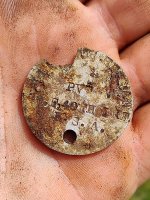uniface
Silver Member
Thin blades were often modified for use as scrapers. Often (usually) only the snapped off tips of these are found. This is the butt end of one, used as an endscraper until it got too short from being resharpened, following which each side was modified into an incurve scraper (spokeshave). Such extensive utilization of even small pieces is typical of people (in this case, Paleo) living in (visiting) area where tools tone was unavailable or of poor quality, meaning everything needed had to be brought from the home territory, or acquired at a lithic resource site along the way. Material is high quality hornstone; find location unknown.
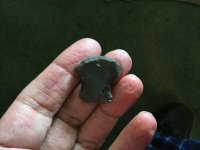
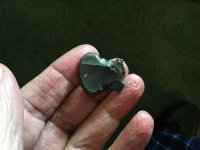
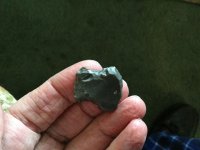
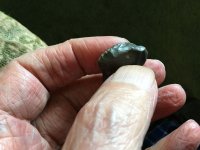




Upvote
0


